A battered and blurry road sign stands at a crossroads in Preah Vihear’s Rui Feng sugarcane plantation. The text is barely legible and looks like it had been smudged with water. To the right is the Lan Feng plantation, straight ahead is Heng Rui, and further east is Heng Yue.
The four plantations — along with a fifth, Heng Non — form the five sugarcane plantations collectively called Rui Feng, spanning more than 40,000 hectares. Large ditches, almost 1-meter deep and filled with muddy rain water, pepper the roads of the plantations.
Large trucks gently drive through the ditches, their suspension groaning from the heavy harvest. But, the trucks are not carrying sugarcane. There is no sugarcane for kilometers. Instead, the cleared land is filled with rice paddy ready for harvest.
Local residents, many from the Kuy indigenous group, say the company, which once claimed to have the largest sugar plantation in Asia, has stopped growing sugarcane since around 2019.
The villagers were in dispute with the company since 2012, when clearings began and residents organized daily patrols to monitor the clearing of their communal forest, farmland and an ancient temple site. Now they are moving back onto their old land — though the company continues to push them off, instead offering to rent them the fields from which they were evicted and which now lie unused.
Five villagers are sitting in a wooden, stilted shack in late September, not more than 2 km from the Rui Feng sugar processing unit — a large manufacturing unit alongside deserted worker housing. Windows in the three-story building were wide open with no signs of occupancy.
The villagers represent two generations of Kuy, both facing similar challenges to their indigenous culture and a loss of ancestral lands.
The land surrounding the wooden shack is used by Khap Sokhy. The 35-year-old farmer does not know exactly how much land he grows crops on; he just points one tree to the left and another to the right to demarcate his land.
The villager had only recently returned to the land, and was growing rice. Immediately, authorities and purported company representatives — Chinese nationals always accompanied by Cambodian translators — asked him to stop cultivating the land in May and June this year. They wanted to see a land title, he said.
“When I asked ‘why are you stopping me?’” Sokhy said. “They would ask for a land title.”
He was then asked to come meet local officials and company representatives. Sokhy flatly refused. “I said this is my land,” he said.
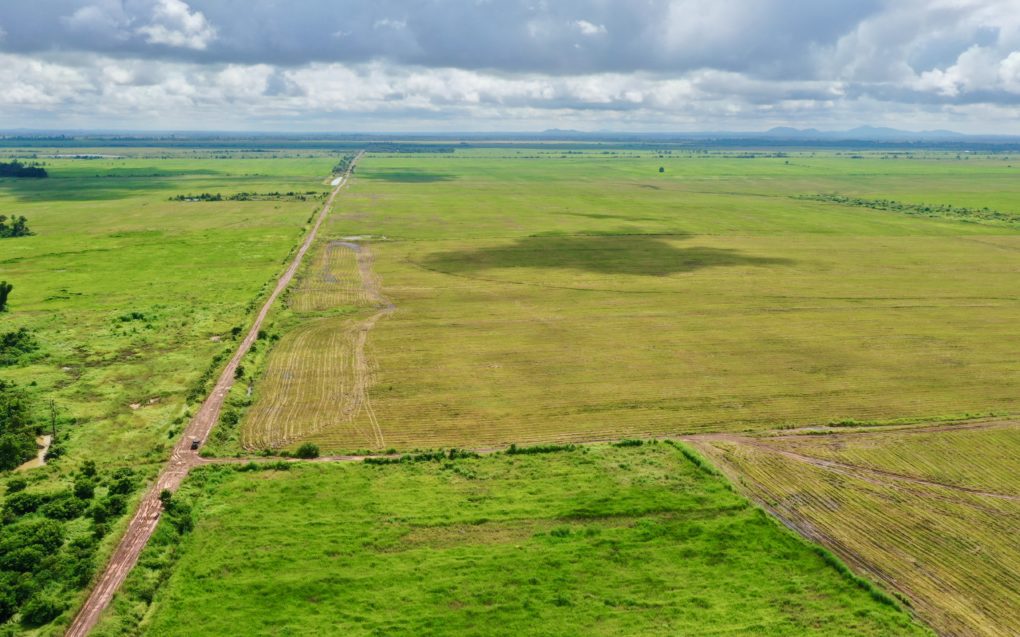
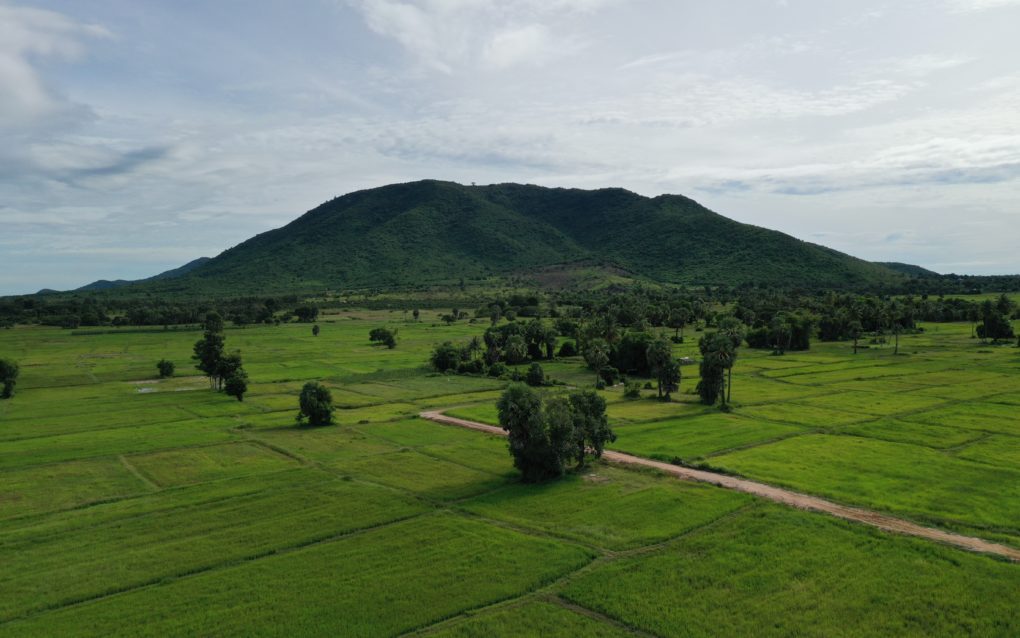
In a corner of the wooden shack, a fire burns, heating a kettle of water, and some cassava is being prepared. Prak Chan sits opposite the burning embers. The 50-year-old farmer is reluctant to speak and sits quietly listening to the other speak about their experiences with Rui Feng.
As he gets up to leave and return to his farmland, Chan says the sugarcane company recently wanted to rent him the 15 hectares of land he already occupied. But when he refused, they just took all of it barring 1 hectare.
He tried speaking to local officials who only shrugged their shoulders and said the land had been given to the company.
“I do not have any idea what to do?” Chan said, leaving the shack. “They keep saying it is the company’s land. What can I do?”
Eager to speak, Thon Sut is the oldest of the group. The 58-year-old farmer is unsure of how much land he had before Rui Feng cleared it, but now cultivates no more than 2 hectares. Like Sokhy, he points to two random points on the horizon to give reporters an estimate of how much land he had, other farmers estimate it was no more than 20 hectares.
Sut was part of patrols run by the community to stop land clearing over the last 10 years. Groups of villagers had camped in the forest and would communicate with other communities to ascertain the locations of land clearing. They would then confront the drivers of the land movers and ask them to stop clearing the land.
“This was all forest. We used to only clear some trees to grow rice. The trees were like an umbrella,” said the farmer.
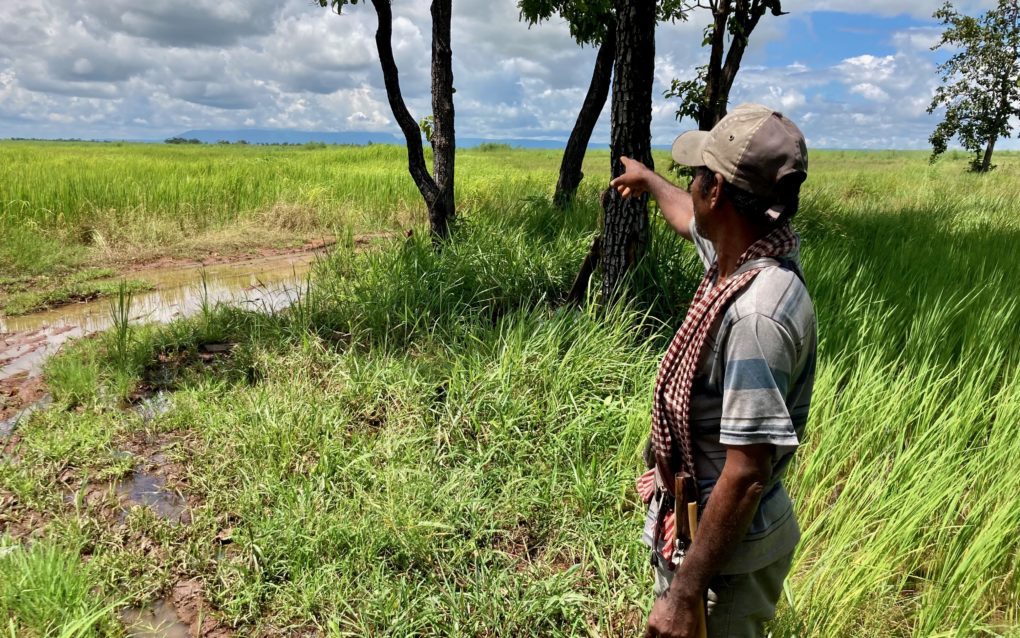
While he was upset about all the land being cleared in the area, he was particularly unhappy with the company’s decision to destroy an ancient temple, which was completely uprooted with nothing left. Other villagers chimed in about the temple and said there was nothing left to rebuild it, even if they could find a way to reconstruct it.
Sut sees the ethnic minority community’s return to their communal land as inevitable.
“They didn’t care about the head or tail of our land,” he said. “Now we are trying to take back what he had before.”
In the distance, Rui Feng’s manufacturing plant lies silent. The gated compound had no security guards or staff that were visible from the road. VOD reporters could not find anybody living in the worker housing or at the processing plant either.
Calls to a phone number listed on the Ministry of Commerce for Rui Feng went unanswered this week.
Local officials too were tightlipped over the company’s operations and unaware of demands that villagers were being asked to pay rent for using the land for cultivation.
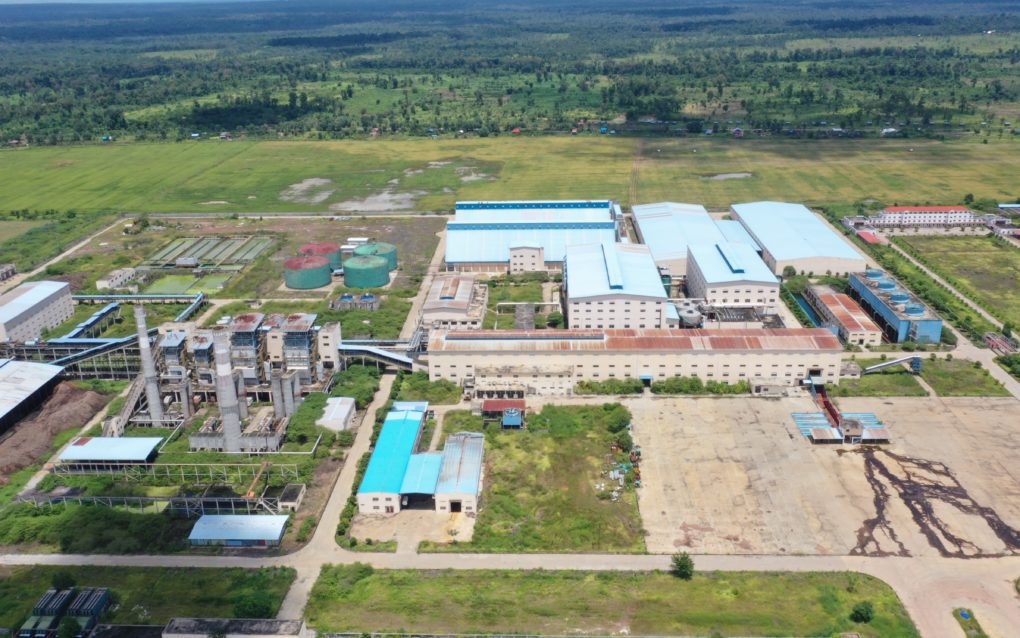
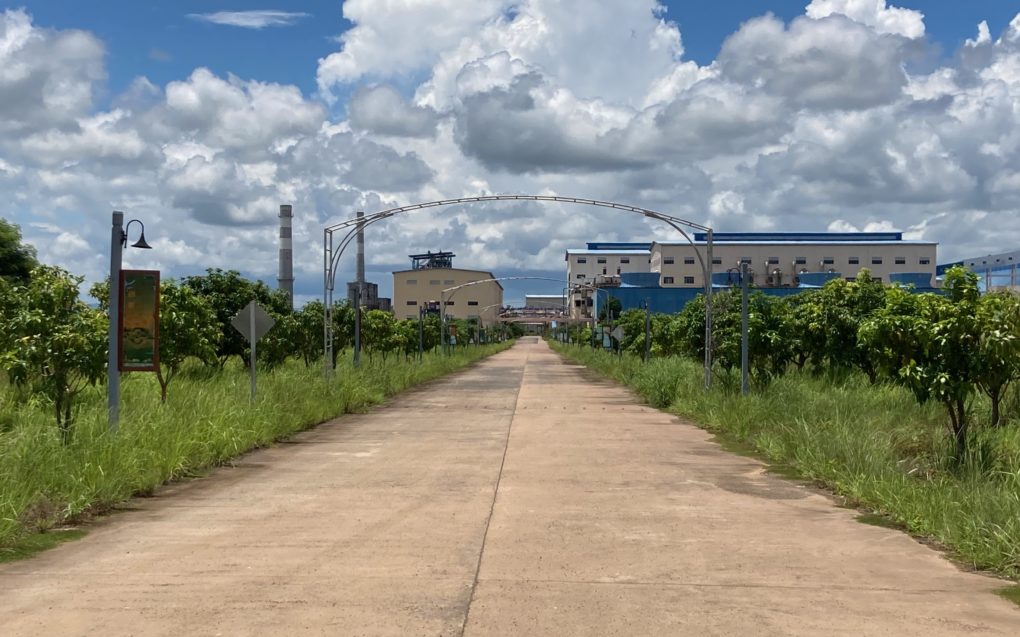
Provincial administration head Kim Hoeung would not comment on the Chinese company and referred questions to the Agriculture Ministry. Agriculture Minister Veng Sakhon could not be reached for comment.
M’lou Prey I commune chief Heng Phuon did not respond to questions about villagers being asked to pay rent, saying that the company had dealt with any land claims and provided compensation.
He claimed to not know about the company’s rent-seeking attempts but kept reiterating that residents cannot use the land because it was in possession of Rui Feng.
“When people came to claim the land and came to cultivate it, it is not legal because the company has the hard title,” he said.
Rights groups have routinely questioned the sustainability of large development projects like Rui Feng or rubber plantations along the eastern border, and their lasting impact on local communities, especially those from ethnic minorities.
The sugar conglomerate has not released any production numbers since operations began in April 2016, despite claiming to have the capacity to process 20,000 tons a day. The operations were being touted as a benefit for the community, and Prime Minister Hun Sen said the company would use sugarcane waste to produce 39 megawatts of electricity, according to an article by government-aligned Fresh News from the inauguration of the plant.
The company claimed to have invested close to a billion dollars to set up the plant and plantation, and promised to produce job opportunities for more than 14,000 Preah Vihear residents.
Villagers in the area said that apart from the dirt tracks and roads the company laid to reach its sugarcane harvests, they have got nothing positive from the massive development project.
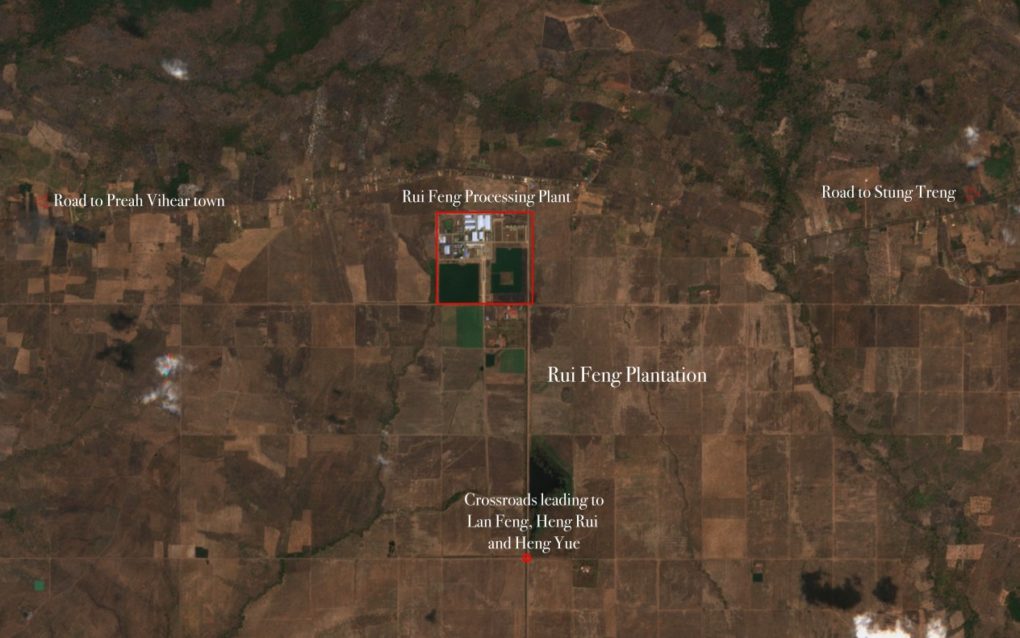
Information from local NGO Punlok Khmer, which works closely with the community, shows that the land is not being used for the intended purpose of growing sugarcane, and the group said it should be returned to the people. The NGO had also received reports that the company was instead trying to collect rent from villagers or had destroyed crops in retaliation for not being paid.
“This is the most disgusting thing — that they own the land and now they have to rent the land from the concession company,” said an employee of the NGO who did not want to be named in this story.
Adhoc’s Preah Vihear staffer, Lor Chan, feels similarly. The rights worker said the company’s development completely disregarded the people, their lives and needs. Even when the company was fully operational, Rui Feng would bring in workers from outside to work the plantation.
“The company’s development has not provided benefits to the people but instead they lost their forest and natural resources, especially the income they could get when there were still forests and trees,” Chan said.
Back at the wooden shack, villagers are reminiscing about how fruitful the forests were before they were cleared. One says they could hunt for small animals and fish in the local streams – both of which had disappeared after the land was cleared. Forest products would provide nourishment and, coupled with rice farming, were enough to feed their families.
These changes were weighing heavy on Sut Saron. Saron, 31, again brings up the destruction of the temple site, which he claimed was built in the 8th century. He was perplexed how no one was held accountable for the demolition.
The economic strain brought on by the loss of land over the last nine years has introduced new distresses for the community: migration to other parts of the country for work and microloans. Saron said his family did not need loans before they lost their land. Now he had to take loans to sustain the family’s farming.
“This is equal to losing our identities because we are losing our culture,” he said.











